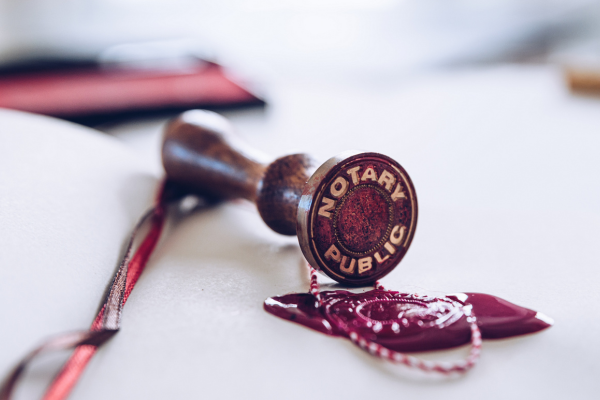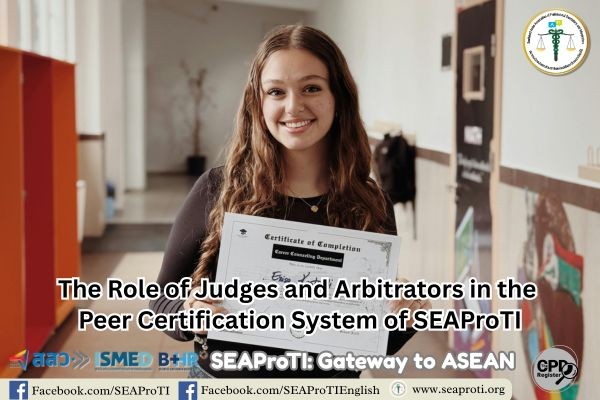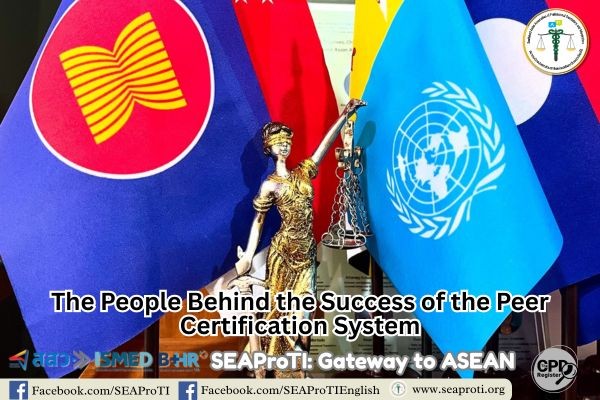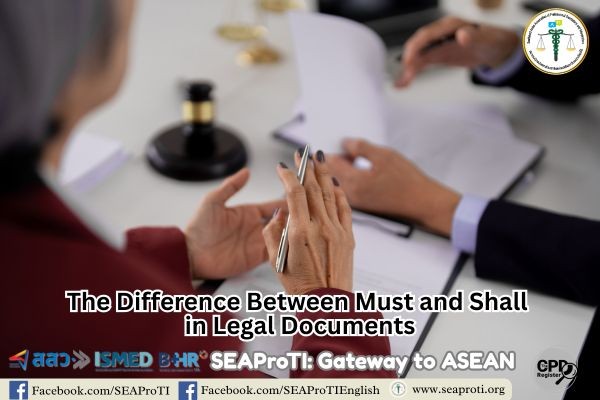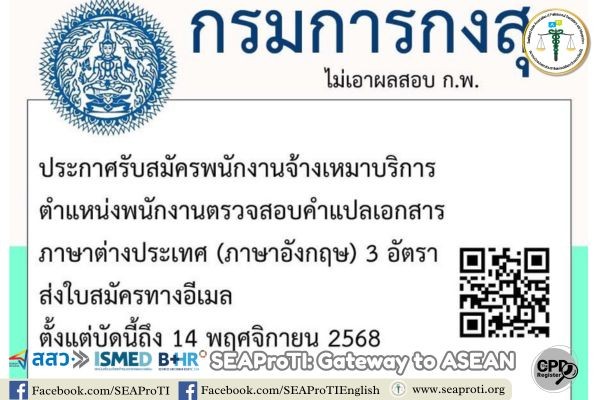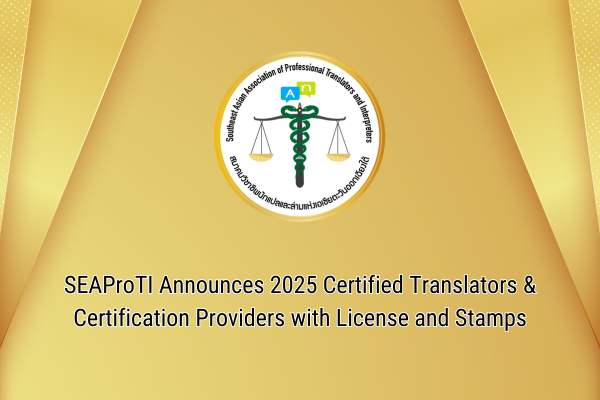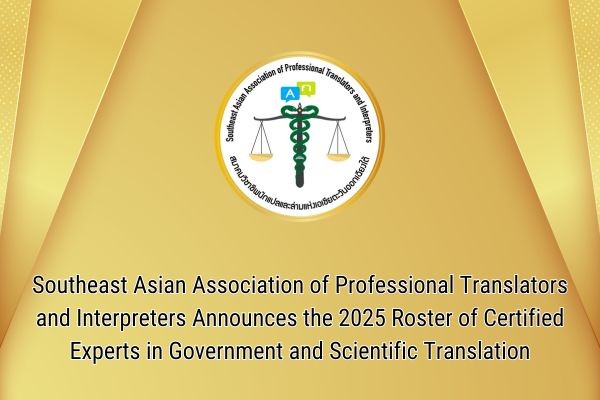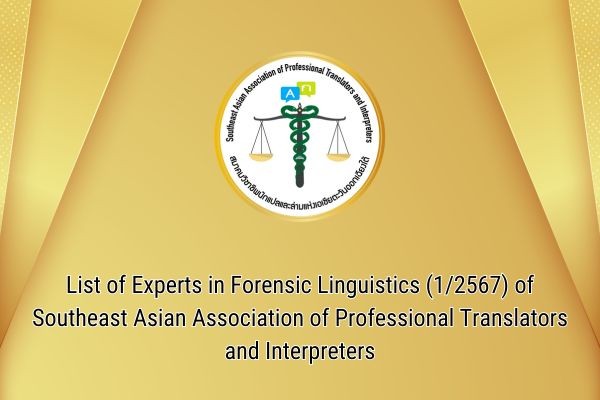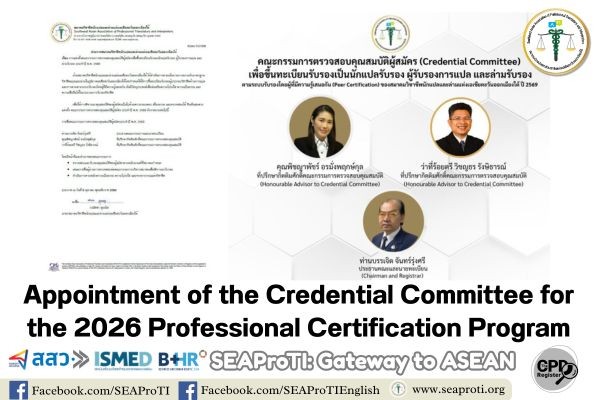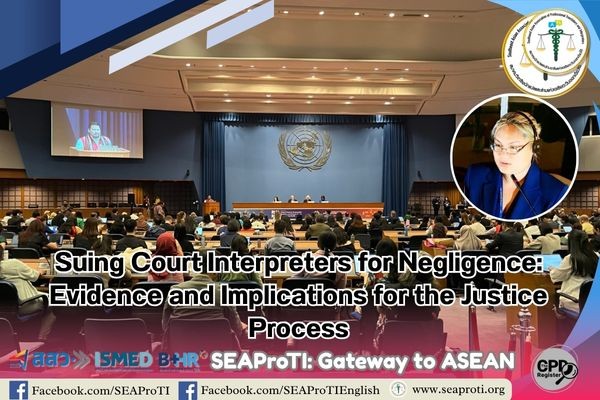Misconceptions about Document and Signature Certification in Thailand: Facts You Should Know to Avoid Confusion
In Thailand, document and signature certification is an important process that ensures the legitimacy and acceptance of documents both domestically and internationally. However, many people have misconceptions about the roles and responsibilities of the individuals or authorities involved in this process. Understanding the facts about certification in Thailand will help you navigate legal procedures confidently and efficiently. In this article, we will explore common misunderstandings about document and signature certification in Thailand and provide you with accurate information on how to properly handle these processes.
Consular Department of the Ministry of Foreign Affairs
One of the primary entities responsible for document certification in Thailand is the Consular Department of the Ministry of Foreign Affairs. There is a common misconception that submitting a document to the Consular Department for certification implies that the department will verify the document’s content for accuracy. In truth, the Consular Department’s role is limited to verifying the authenticity of signatures and ensuring that the document complies with legal standards for use both domestically and internationally.
In practice, the department provides legalization of public documents, meaning that its duties also include notarizing such documents. However, due to current staffing limitations, the department has yet to officially announce its role in providing notarial services to the public. Additionally, the department plans to introduce an apostille service in the near future to certify the authenticity of original documents, rather than copies.
The Consular Department does not make corrections to the content or verify the accuracy of translated documents. Their role is strictly to certify that the original document is legitimate and can be accepted by government agencies and foreign institutions. Therefore, if you need translation certification, you must use a certified translator who has the appropriate qualifications such as translators and translation certification providers from the Southeast Asian Association of Professional Translators and Interpreters (SEAProTI).
Notarial Services Attorney (NSA) in Thailand
Another individual who can certify documents and signatures in Thailand is a Notarial Services Attorney, who has received a license from the Lawyers Council of Thailand. These attorneys are authorized to certify signatures, confirm the correctness of signatures, and act as witnesses for various types of documents. The role of notarial attorneys in Thailand is quite similar to that of a Notary Public in other countries, where they perform the same document-certifying functions.
However, there is a common misconception that notarial attorneys are responsible for certifying the accuracy of the content and translations within the document. In fact, the notarial attorney’s main responsibility is to verify the signature and its legitimacy including authentication. They do not review the accuracy or correctness of the information and translations within the document. Therefore, if the content or the translations of a document is critical or legally binding, you should have the content reviewed by an expert in that particular field before having the document certified by an attorney. For instance, the accuracy of correctness of translations should be inspected by a certified translator.
Notary Public in Thailand
The term Notary Public is often misunderstood in Thailand. Unlike the United States or European countries, Thailand does not have an official Notary Public. Many people assume that Thailand offers the same Notary Public services as those countries, but the reality is that notarial services are provided by licensed attorneys who have received special training to fulfill the notarial function and they are not in the accord of The Hague Convention regarding Notary Public.
Attorneys certified by the Lawyers Council of Thailand serve as an equivalent to Notary Public services abroad and are internationally recognized for their authority to certify documents. However, the absence of an official Notary Public in Thailand means that people who need such services must understand the differences in responsibilities and the limitations of notarial attorneys.
Translation Certification: The Role of Professional Translators
When it comes to certifying translations of documents, many people mistakenly think that the certification process done by the Consular Department or notarial attorney includes certifying the accuracy of the translation as well. This is not the case, as neither the Consular Department nor the notarial attorney is responsible for verifying the accuracy of translations.
Certification of translations should be carried out by a certified professional translator or an authorized organization, such as the Southeast Asian Association of Professional Translators and Interpreters (SEAProTI). Certified translators have specialized expertise in translating documents in relevant fields such as law, medicine, or other technical areas. By using certified translation services, you can be assured that the translated content is correct and meets the required standards.
Roles and Responsibilities of Document and Signature Certification
Another frequent misunderstanding is the belief that certification of documents and signatures by the Consular Department or a notarial attorney includes certification of the content of the document. In fact, document and signature certification is only intended to verify that the original document is authentic and that the signatures are legitimate. It does not certify that the content within the document is accurate or legally valid.
If the document you wish to certify is significant or legally binding, it is crucial to have the content reviewed by a specialist before submitting it for certification. This will help avoid any errors and ensure that the certified document is credible and ready for official use.
Practical Steps for Certification in Thailand
To help clarify the process of certification in Thailand, here are some practical steps you can take to ensure you handle your document certification correctly:
-
Identify the Type of Document: Determine whether you need a document certified for local or international use. This will help you understand which entity to approach.
-
Choose the Right Authority: If you need to certify an official document, contact the Consular Department of the Ministry of Foreign Affairs. If you need certification for signatures or as a witness to a document, consult a Notarial Services Attorney.
-
Certified Translation: For translations that require certification, make sure to use a certified translator or a recognized organization, such as SEAProTI. Do not expect the consular department or attorney to verify the content of the translation.
-
Get Expert Review: If the content of the document is important, have a subject matter expert review the document before you proceed with certification.
By following these steps, you can minimize the chances of errors and ensure that your document meets all necessary legal and procedural requirements.
Summary: Accurate Document Certification in Thailand
Document and signature certification in Thailand is an essential process to ensure that documents are legitimate and can be used both in Thailand and abroad. However, many misconceptions about the roles and responsibilities of the individuals and authorities involved in the certification process may lead to problems and delays in legal procedures.
When it comes to certifying documents and signatures, it is important to understand the roles and duties of the authorities and individuals involved. This will help you navigate the certification process smoothly and in compliance with the law. If you need to certify a document or translation, it is advisable to consult with an expert to obtain the correct information and services.
Certified Translators and Translation Certification Providers are professionals licensed to practice as translators and certify translations. They operate under the Southeast Asian Association of Professional Translators and Interpreters (SEAProTI). These professionals receive a Translator’s Seal and a Stamp to Certify the Correctness of the Translation, issued by the association, with clearly specified control numbers. They also possess a professional card that can be verified.
About SEAProTI’s certified translators, translation certification providers, and certified interpreters:
The Southeast Asian Association of Professional Translators and Interpreters (SEAProTI) has officially announced the criteria and qualifications for individuals to register as “Certified Translators,” “Translation Certification Providers,” and “Certified Interpreters” under the association’s regulations. These guidelines are detailed in Sections 9 and 10 of the Royal Thai Government Gazette, issued by the Secretariat of the Cabinet under the Office of the Prime Minister of the Kingdom of Thailand, dated July 25, 2024, Volume 141, Part 66 Ng, Page 100.
To read the full publication, visit: the Royal Thai Government Gazette
ความเข้าใจผิดเกี่ยวกับการรับรองเอกสารและลายเซ็นในประเทศไทย: ข้อเท็จจริงที่คุณควรรู้เพื่อหลีกเลี่ยงความสับสน
ในประเทศไทย การรับรองเอกสารและลายเซ็นเป็นกระบวนการที่สำคัญในการยืนยันความถูกต้องและการยอมรับเอกสารทั้งในประเทศและต่างประเทศ อย่างไรก็ตาม หลายคนมีความเข้าใจผิดเกี่ยวกับบทบาทและความรับผิดชอบของบุคคลหรือหน่วยงานที่เกี่ยวข้องในกระบวนการนี้ การเข้าใจข้อเท็จจริงเกี่ยวกับการรับรองในประเทศไทยจะช่วยให้คุณสามารถดำเนินการทางกฎหมายได้อย่างมั่นใจและมีประสิทธิภาพ ในบทความนี้ เราจะสำรวจความเข้าใจผิดทั่วไปเกี่ยวกับการรับรองเอกสารและลายเซ็นในประเทศไทย และให้ข้อมูลที่ถูกต้องเกี่ยวกับวิธีการจัดการกระบวนการเหล่านี้อย่างเหมาะสม
กรมการกงสุล กระทรวงการต่างประเทศ
หนึ่งในหน่วยงานหลักที่รับผิดชอบการรับรองเอกสารในประเทศไทยคือ กรมการกงสุล กระทรวงการต่างประเทศ ซึ่งมักมีความเข้าใจผิดว่าเมื่อส่งเอกสารไปยังกรมการกงสุลเพื่อการรับรอง หมายความว่ากรมฯ จะตรวจสอบความถูกต้องของเนื้อหาเอกสารด้วย ในความเป็นจริง บทบาทของกรมการกงสุลจำกัดอยู่เพียงการตรวจสอบความถูกต้องของลายเซ็นและตรวจสอบว่าเอกสารเป็นไปตามมาตรฐานทางกฎหมายเพื่อใช้ทั้งในประเทศและต่างประเทศ
ในทางปฏิบัติ กรมฯ จะทำการรับรองความถูกต้องของเอกสารราชการ ซึ่งหมายความว่าหน้าที่ของกรมฯ ยังรวมถึงการทำหน้าที่เป็นพยานรับรองเอกสารดังกล่าวด้วย อย่างไรก็ตาม เนื่องจากข้อจำกัดด้านบุคลากรในปัจจุบัน กรมฯ ยังไม่ได้ประกาศอย่างเป็นทางการเกี่ยวกับบทบาทในการให้บริการพยานรับรองเอกสารแก่ประชาชน นอกจากนี้ กรมฯ ยังมีแผนที่จะให้บริการรับรองแบบ Apostille ในอนาคตอันใกล้ เพื่อรับรองความถูกต้องของเอกสารต้นฉบับแทนสำเนา
กรมการกงสุลไม่มีหน้าที่ในการแก้ไขเนื้อหาเอกสารหรือการตรวจสอบความถูกต้องของการแปล บทบาทของกรมฯ คือการรับรองว่าเอกสารต้นฉบับมีความถูกต้องและสามารถได้รับการยอมรับจากหน่วยงานราชการและสถาบันต่างประเทศ ดังนั้น หากคุณต้องการรับรองการแปลเอกสาร คุณจะต้องใช้บริการนักแปลที่ได้รับการรับรองและมีคุณสมบัติเหมาะสม เช่น นักแปลและผู้ให้บริการการรับรองการแปลจากสมาคมวิชาชีพนักแปลและล่ามแห่งเอเชียตะวันออกเฉียงใต้ (SEAProTI)
ทนายความผู้ให้บริการพยานรับรอง (NSA) ในประเทศไทย
อีกหนึ่งบุคคลที่สามารถรับรองเอกสารและลายเซ็นในประเทศไทยได้คือ ทนายความผู้ให้บริการพยานรับรอง ซึ่งได้รับใบอนุญาตจากสภาทนายความแห่งประเทศไทย ทนายความเหล่านี้มีอำนาจในการรับรองลายเซ็น ยืนยันความถูกต้องของลายเซ็น และเป็นพยานในเอกสารต่าง ๆ บทบาทของทนายความผู้ให้บริการพยานรับรองในประเทศไทยมีความคล้ายคลึงกับ Notary Public ในประเทศอื่น ๆ ซึ่งทำหน้าที่ในการรับรองเอกสาร
อย่างไรก็ตาม มีความเข้าใจผิดทั่วไปว่าทนายความผู้ให้บริการพยานรับรองมีหน้าที่ในการรับรองความถูกต้องของเนื้อหาและการแปลในเอกสารด้วย ความเป็นจริงคือหน้าที่หลักของทนายความผู้ให้บริการพยานรับรองคือการตรวจสอบลายเซ็นและความถูกต้องของการลงลายเซ็น รวมถึงการยืนยันความถูกต้องเท่านั้น พวกเขาไม่ได้ทำการตรวจสอบหรือยืนยันความถูกต้องของข้อมูลและการแปลในเอกสาร ดังนั้น หากเนื้อหาหรือการแปลของเอกสารมีความสำคัญหรือมีผลผูกพันทางกฎหมาย ควรให้ผู้เชี่ยวชาญในสาขานั้น ๆ ตรวจสอบเนื้อหาก่อนที่จะให้ทนายความรับรองเอกสาร เช่น ความถูกต้องของการแปลควรตรวจสอบโดยนักแปลที่ได้รับการรับรอง
Notary Public ในประเทศไทย
คำว่า Notary Public มักจะถูกเข้าใจผิดในประเทศไทย แตกต่างจากประเทศสหรัฐอเมริกาหรือประเทศในยุโรป ประเทศไทยไม่มี Notary Public อย่างเป็นทางการ หลายคนเข้าใจผิดว่าประเทศไทยให้บริการ Notary Public เช่นเดียวกับประเทศเหล่านั้น แต่ความจริงคือบริการพยานรับรองในประเทศไทยให้บริการโดยทนายความที่ได้รับการฝึกอบรมพิเศษเพื่อทำหน้าที่ในการรับรอง และไม่เป็นไปตามอนุสัญญาเฮกเกี่ยวกับ Notary Public
ทนายความที่ได้รับการรับรองจากสภาทนายความแห่งประเทศไทยทำหน้าที่เป็นเสมือน Notary Public ในต่างประเทศ และได้รับการยอมรับในระดับสากลในการรับรองเอกสาร อย่างไรก็ตาม การไม่มี Notary Public อย่างเป็นทางการในประเทศไทย หมายความว่าผู้ที่ต้องการใช้บริการดังกล่าวต้องเข้าใจถึงความแตกต่างในหน้าที่และข้อจำกัดของทนายความผู้ให้บริการพยานรับรอง
การรับรองการแปล: บทบาทของนักแปลวิชาชีพ
เมื่อพูดถึงการรับรองการแปลเอกสาร หลายคนเข้าใจผิดว่ากระบวนการรับรองโดยกรมการกงสุลหรือทนายความผู้ให้บริการพยานรับรองรวมถึงการรับรองความถูกต้องของการแปลด้วย ซึ่งไม่เป็นความจริง เนื่องจากทั้งกรมการกงสุลและทนายความผู้ให้บริการพยานรับรองไม่มีหน้าที่ในการตรวจสอบความถูกต้องของการแปล
การรับรองการแปลควรกระทำโดยนักแปลมืออาชีพที่ได้รับการรับรองหรือองค์กรที่ได้รับอนุญาต เช่น สมาคมวิชาชีพนักแปลและล่ามแห่งเอเชียตะวันออกเฉียงใต้ (SEAProTI) นักแปลที่ได้รับการรับรองมีความเชี่ยวชาญพิเศษในการแปลเอกสารในสาขาที่เกี่ยวข้อง เช่น กฎหมาย การแพทย์ หรือสาขาเทคนิคอื่น ๆ การใช้บริการแปลที่ได้รับการรับรอง คุณสามารถมั่นใจได้ว่าเนื้อหาที่แปลมีความถูกต้องและเป็นไปตามมาตรฐานที่กำหนด
นักแปลรับรอง (Certified Translators) และผู้รับรองคำแปล (Translation Certification Providers) เป็นผู้ที่มีใบอนุญาตให้ประกอบวิชาชีพนักแปลและผู้รับรองการแปล และปฏิบัติหน้าที่ในนามสมาคมวิชาชีพนักแปลและล่ามแห่งเอเชียตะวันออกเฉียงใต้ (SEAProTI) นักวิชาชีพเหล่านี้ จะได้รับตราประทับนักแปล (Translator’s Seal) และตราประทับรับรองคำแปลถูกต้อง (Stamp to Certify the Coreectness of the Translation) ที่สมาคมออกให้ และระบุหลายเลขควบคุมต่าง ๆ ได้ชัดเจน และมีบัตรวิชาชีพที่สามารถตรวจสอบได้
บทบาทและความรับผิดชอบของการรับรองเอกสารและลายเซ็น
อีกหนึ่งความเข้าใจผิดบ่อยครั้งคือ การรับรองเอกสารและลายเซ็นโดยกรมการกงสุลหรือทนายความผู้ให้บริการพยานรับรองรวมถึงการรับรองเนื้อหาในเอกสารด้วย ความเป็นจริงคือการรับรองเอกสารและลายเซ็นมีจุดประสงค์เพื่อยืนยันว่าเอกสารต้นฉบับเป็นของแท้และลายเซ็นนั้นถูกต้องเท่านั้น ไม่ได้เป็นการรับรองว่าเนื้อหาในเอกสารมีความถูกต้องหรือมีผลผูกพันทางกฎหมาย
หากเอกสารที่คุณต้องการรับรองมีความสำคัญหรือมีผลผูกพันทางกฎหมาย ควรให้ผู้เชี่ยวชาญในสาขานั้น ๆ ตรวจสอบเนื้อหาก่อนที่จะส่งเอกสารเพื่อรับรอง เพื่อหลีกเลี่ยงความผิดพลาดและให้แน่ใจว่าเอกสารที่ได้รับการรับรองนั้นมีความน่าเชื่อถือและพร้อมใช้อย่างเป็นทางการ
เกี่ยวกับนักแปลรับรอง ผู้รับรองการแปล และล่ามรับรองของสมาคมวิชาชีพนักแปลและล่ามแห่งเอเชียตะวันออกเฉียงใต้
สมาคมวิชาชีพนักแปลและล่ามแห่งเอเชียตะวันออกเฉียงใต้ (SEAProTI) ได้ประกาศหลักเกณฑ์และคุณสมบัติผู้ที่ขึ้นทะเบียนเป็น “นักแปลรับรอง (Certified Translators) และผู้รับรองการแปล (Translation Certification Providers) และล่ามรับรอง (Certified Interpreters)” ของสมาคม หมวดที่ 9 และหมวดที่ 10 ในราชกิจจานุเบกษา ของสำนักเลขาธิการคณะรัฐมนตรี ในสำนักนายกรัฐมนตรี แห่งราชอาณาจักรไทย ลงวันที่ 25 ก.ค. 2567 เล่มที่ 141 ตอนที่ 66 ง หน้า 100 อ่านฉบับเต็มได้ที่: นักแปลรับรอง ผู้รับรองการแปล และล่ามรับรอง


